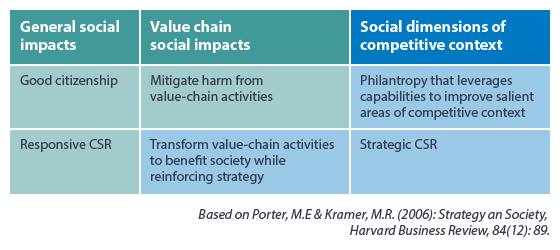The Internal Context
Overview, Learning Outcomes and Structure of the Lesson

Corporate Social Responsibility

Business started long centuries before the dawn of history, but business as we now know it is new – new in its broadening scope, new in its social significance. Business has not learned how to handle these changes, nor does it recognise the magnitude of its responsibilities for the future of civilisation.
Wallace B. Donham, Dean of Harvard Business School
Corporate (Social) Responsibility Defined

Approaches to Corporate Social Responsibility



Marketing Ethics

Review and Discussion Questions
- What is the relationship between sustainability marketing and CSR?
- If marketers deliver what the customer wants and obey the law, why do they need to worry about ethics?
Literature and References
Belz, F.M., Peattie, K. (2012): Sustainability Marketing: A Global Perspective, 2. Ed., Chichester: Wiley, p. 21-48.
World Business Council for Sustainable Development (1999): Corporate Social Responsibility, Geneva: WBCSD.
This gives a good overview of CSR and puts it in the context of the pursuit of sustainable development.Smith, N.C., Palazzo, G. & Bhattacharya, D. (2010): Marketing’s Consequences: Stakeholder Marketing and Supply Chain CSR Issues (Working Paper), Fontainebleu: INSEAD, http://www.insead.edu/facultyresearch/research/doc.cfm?did=43992.
This paper offers a really comprehensive look at the consequences of marketing, both intended and unintended.
|